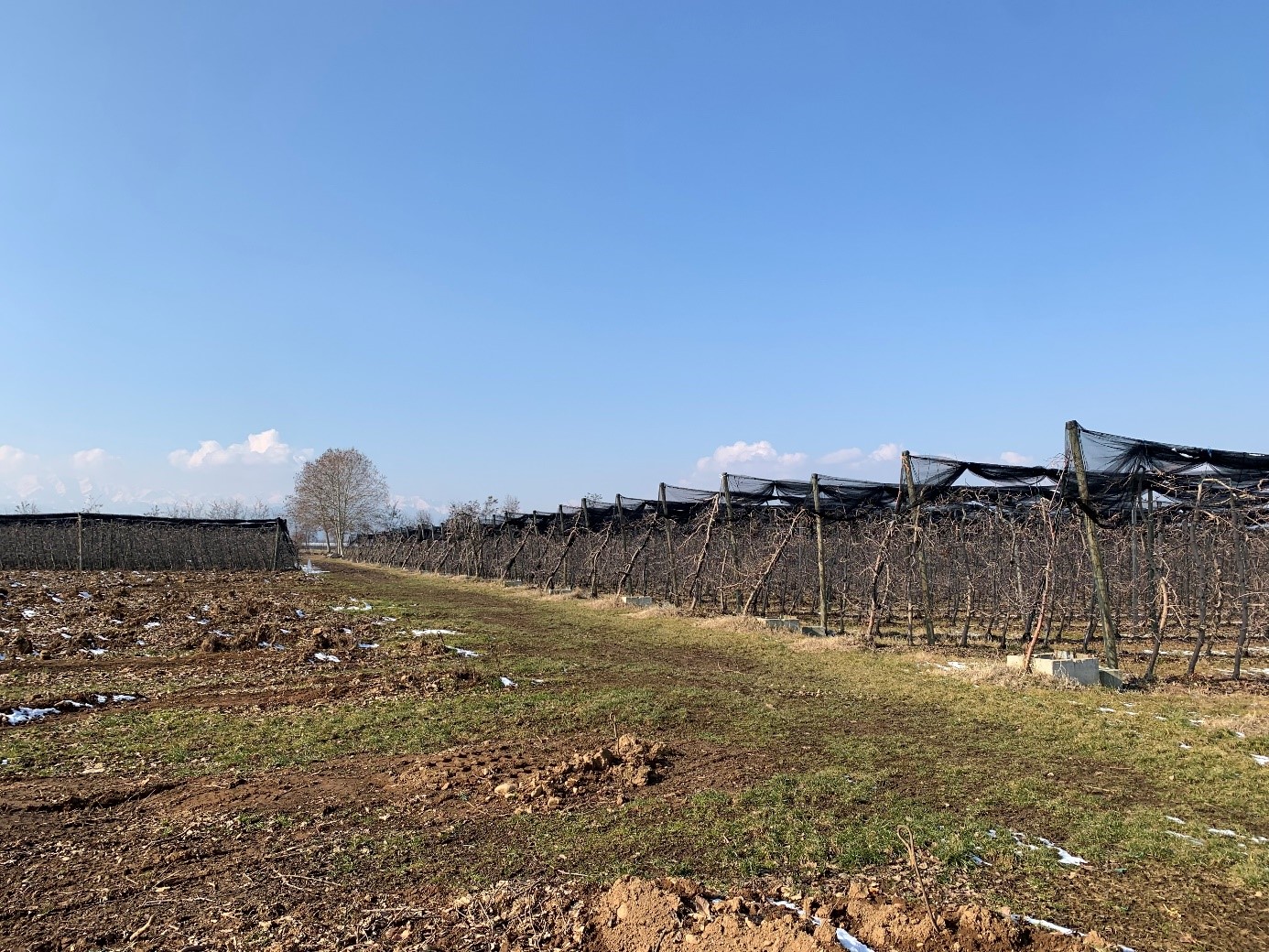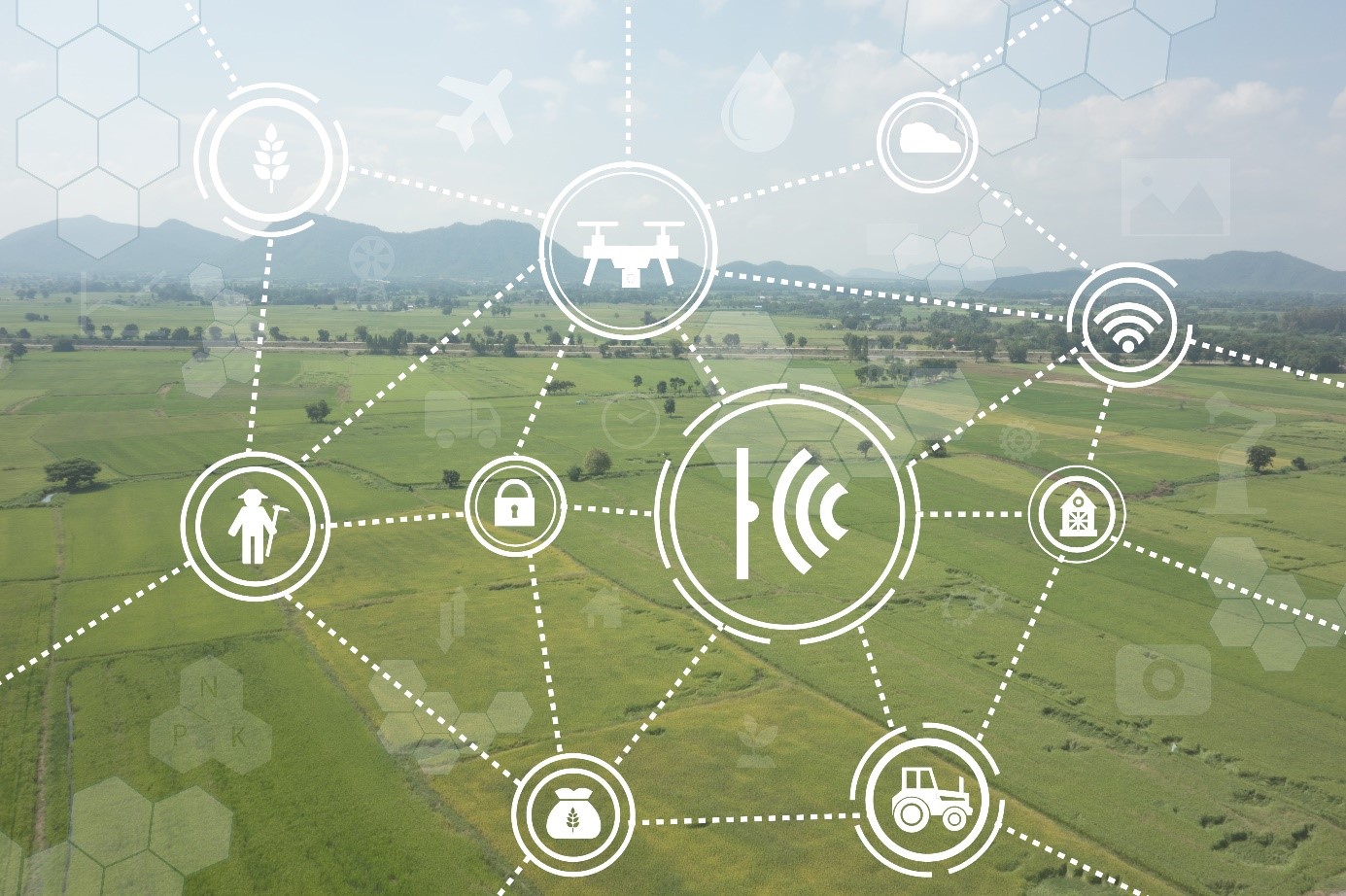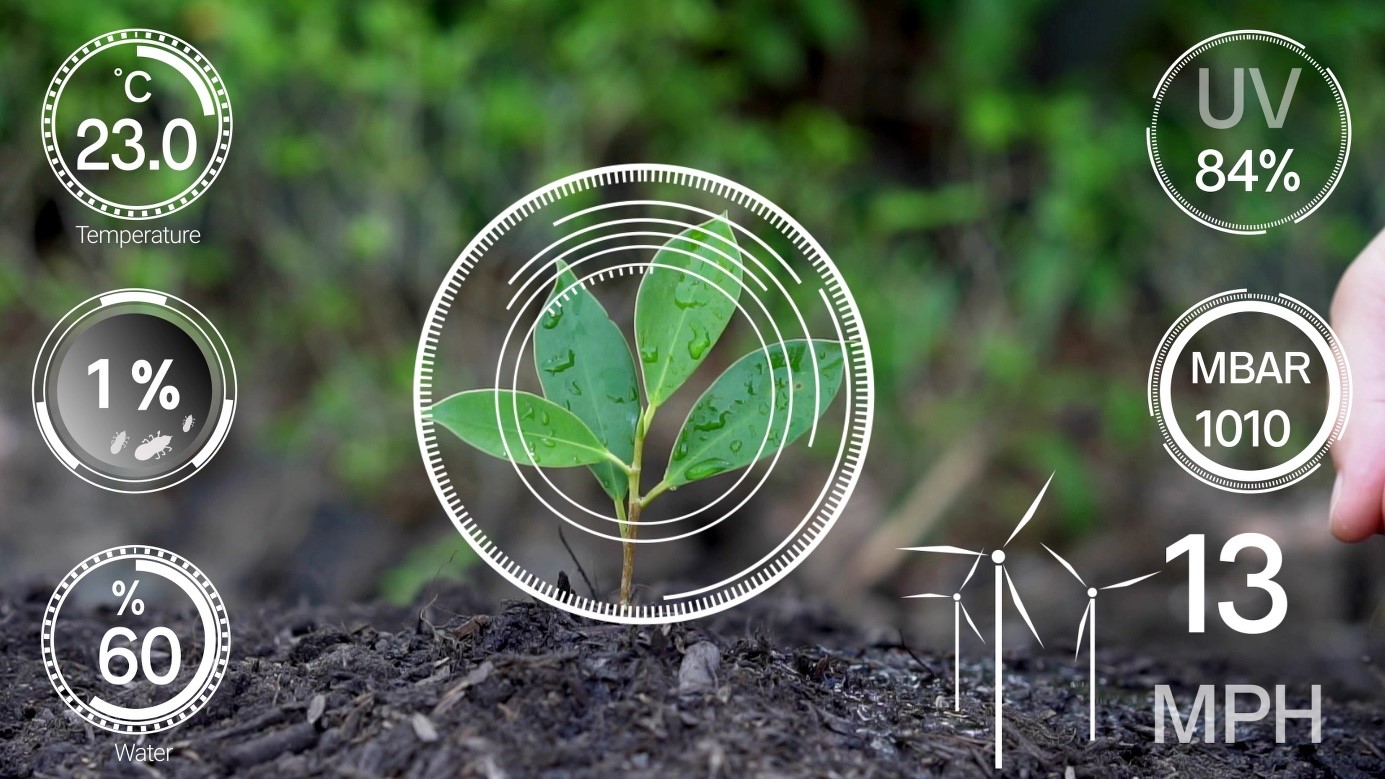
Precision Agriculture and Farm Management Systems
Unleashing Efficiency and Sustainability by controlling the right variables in cutting-edge Farm Management
Beneath traditional use of heavy machinery, soil oversaturation and often expensive but unnecessary irrigation, a quiet revolution is underway — Precision Agriculture and Farm Management Systems are promising in a new era for farmers worldwide. As we delve into the complexities of modern farming challenges, this article introduces sketches of innovation that are rapidly transforming a much-discussed industry. From remote sensing, harnessing precipitation monitoring and leveraging data analytics to embracing sustainable practices, discover how these advanced systems are not just cultivating crops but also cultivating a future of efficiency, sustainability and resilience.
Cultivating Efficiency and Climate Resilience
In the quest for sustainable and resilient agriculture, Precision Agriculture and smart farm management systems emerge as powerful tools to stakeholders, researchers and policymakers. These innovative approaches are not merely optimizing existing practices; they are revolutionizing the very essence of farming, ensuring a more productive and adaptable future along the guidelines of set global goals.
Precision Agriculture, through its precise application of resources, minimizes waste and maximizes efficiency. By utilizing advanced technologies such as GNSS-guided machinery, automated drones, and remote-sensing networks, farmers can optimize field-level management with unparalleled accuracy. This precision extends beyond the use of fertilizers and pesticides to include water management, seed planting, weather and risk management as well as harvesting techniques. The result is a significant reduction in resource consumption, immense potential for cost savings, and significantly enhanced farm efficiency and security.
Moreover, Precision Agriculture contributes substantially to climate resilience and mitigation actions (cf. Balasundram et al. 2023). As climate change brings about unpredictable weather patterns and ever more frequent extremes, farmers face heightened challenges in adapting their practices. Precision Agriculture equips them with the tools to respond quickly and effectively. Through real-time data analytics and monitoring, farmers can adjust their strategies based on changing weather conditions. For instance, if a sudden weather event is detected, automated systems can trigger responses like adjusting irrigation levels or altering planting schedules, mitigating potential damage to crops. Whis is a mayor goal MAGDA has set to strive for.
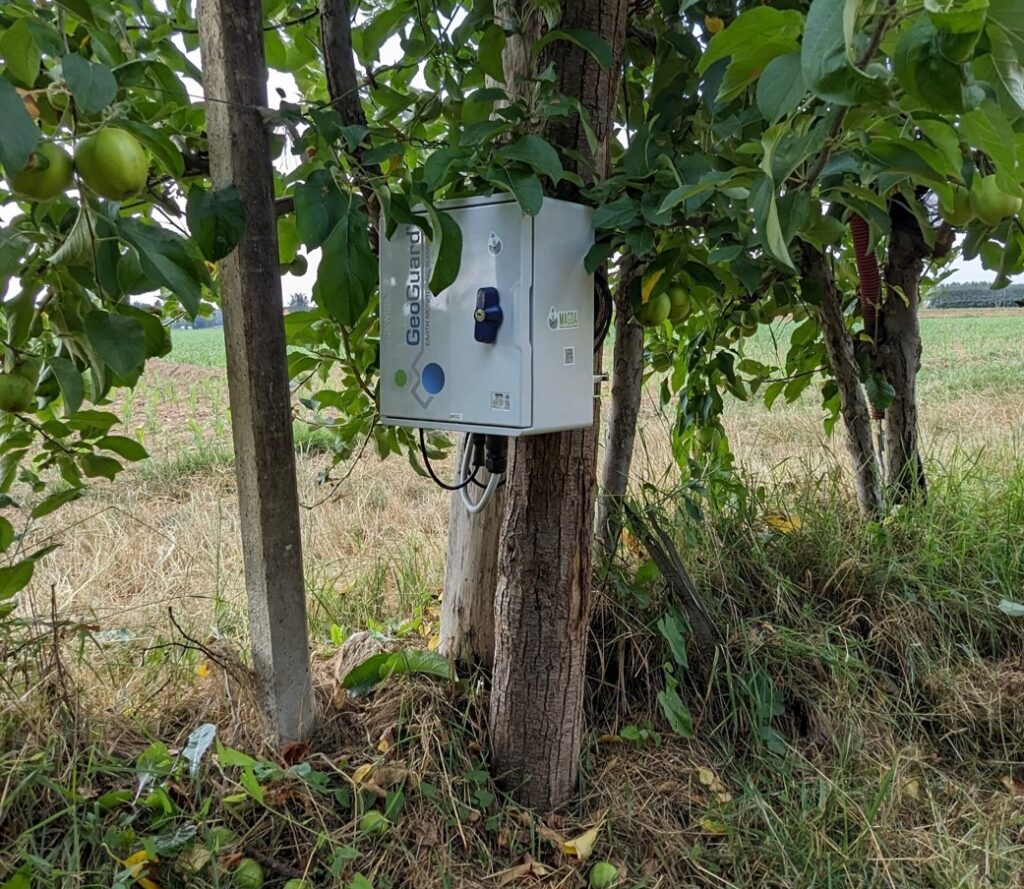
The integration of climate-smart technologies, fed by precise data, allows farmers to build resilience against the adverse effects of extreme climate events. It not only helps farmers adapt to the current climate challenges but also prepares them for future uncertainties, fostering a more sustainable and resilient agricultural ecosystem.
Success stories abound, showcasing how Precision Agriculture has transformed farms into highly efficient and adaptive systems. Farmers who have adopted these technologies report increased crop yields, reduced environmental impact, and improved profitability and sustainability for various crops (cf. Van Evert et al. 2017). Furthermore, the ability to tailor farming practices to the specific needs of each area of cultivation enables a more sustainable use of added nutrients and resources, reducing the overall ecological footprint of agriculture.
In essence, the cultivation of efficiency and climate resilience through Precision Agriculture is not just another modernisation trend or paradigm shift; it is a necessity in the face of a rapidly changing climate and a growing demand on many traditional production sectors. Cutting-edge technological systems like the ones applied in the MAGDA Project provide a strong support for farmers on the path, steering between the challenges and risks of a modern agricultural landscape.
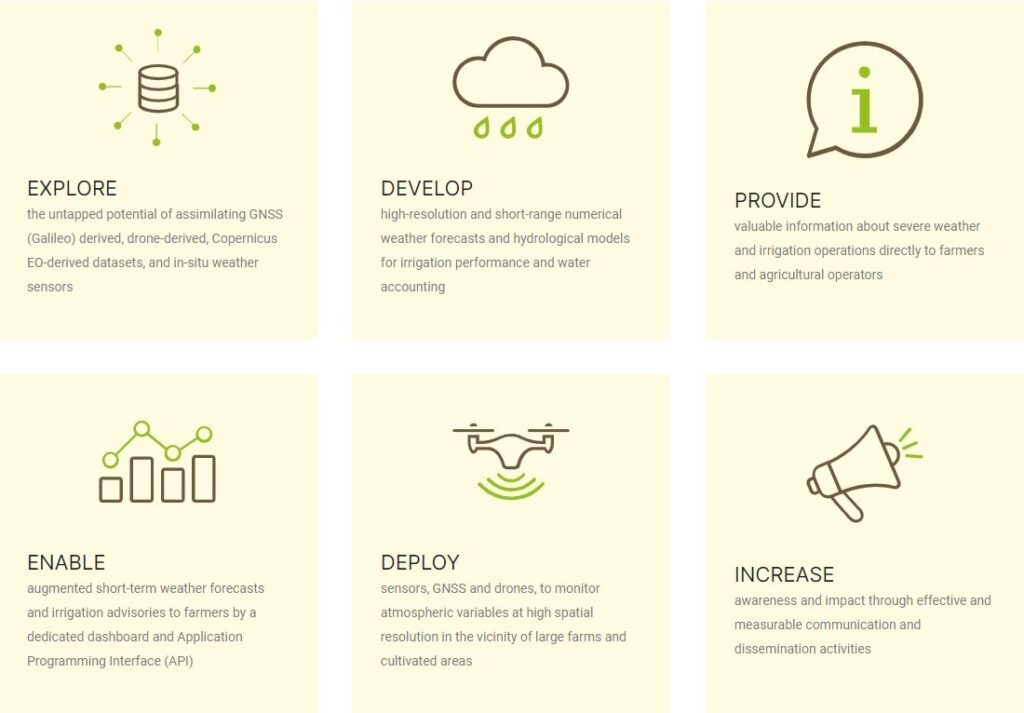
Author(s): M&S
Sources
Balasundram, S.K.; Shamshiri, R.R.; Sridhara, S.; Rizan, N. The Role of Digital Agriculture in Mitigating Climate Change and Ensuring Food Security: An Overview. Sustainability 2023, 15, 5325. https://doi.org/10.3390/su15065325
Van Evert, F.K.; Gaitán-Cremaschi, D.; Fountas, S.; Kempenaar, C. Can Precision Agriculture Increase the Profitability and Sustainability of the Production of Potatoes and Olives? Sustainability 2017, 9, 1863. https://doi.org/10.3390/su9101863.
Keywords
Precision Agriculture, Sensing, Climate Change, Challenges, Efficiency, Weather, Extreme Events
